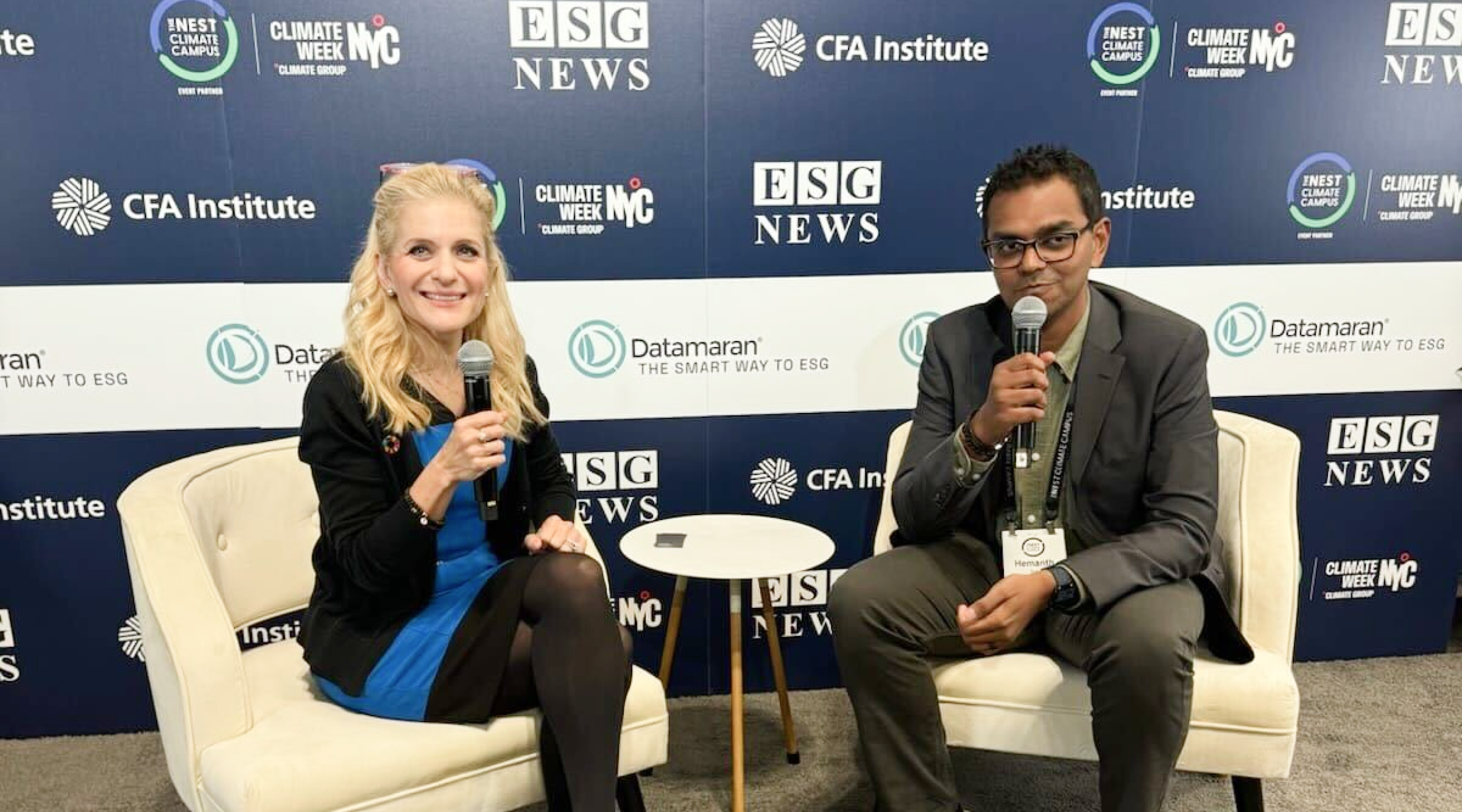Climate Week NYC, held from September 22 to 29, 2024, concluded last night. It marked a significant gathering of global leaders, activists, and innovators dedicated to addressing climate change. This year's theme, "It’s Time," resonated throughout the week, emphasizing the urgency for action as the world faces unprecedented climate challenges.
New York Climate Week 2024 served as a powerful platform for urgent climate action, featuring a wide array of discussions and initiatives aimed at both global and local levels. The event brought together policymakers, activists, businesses, and grassroots organizations to address the multifaceted challenges of climate change.
This year's key themes included integrating public health into climate action, the importance of resilience and adaptation strategies, and the intersection of climate and social justice. Public health experts emphasized the increasing health disparities exacerbated by climate change, advocating for climate solutions that address both environmental and human health concerns(Harvard School of Public Health).
Overview of Climate Week NYC
Climate Week NYC is recognized as one of the largest annual climate events globally, organized in conjunction with the United Nations General Assembly. This year’s event featured over 600 activities across New York City, designed to foster dialogue and collaboration among diverse stakeholders, including business leaders, policymakers, scientists, and community activists. The event provides a platform for sharing innovative solutions and mobilizing collective action toward achieving climate goals.
In New York City, there was a strong push for tangible, community-driven action. For instance, Ecosia's partnership with the Bronx is Blooming highlighted efforts to improve air quality and climate resilience in underserved areas through tree planting initiatives. This project in the South Bronx exemplified how local action can combat long-standing environmental injustices(The Ecosia Blog).
On a broader scale, discussions focused on advancing technologies like hydrogen energy, decentralizing energy grids, and scaling tropical forest conservation efforts. Sessions led by the Environmental Defense Fund (EDF) and other organizations stressed the need for robust investment in these areas to foster climate resilience and reduce carbon emissions(Environmental Defense Fund).
Overall, NY Climate Week 2024 reinforced the message that addressing climate change requires systemic policy shifts and grassroots initiatives, all while integrating considerations of equity and health.
Major Takeaways
New York Climate Week 2024 highlighted several critical themes driving global climate action. Here are the major takeaways:
- The New Industrial Revolution: A central theme was the ongoing transition from a fossil fuel-based economy to a green economy. This shift is reshaping corporate energy use, business models, and skill requirements for future generations. It is seen as a major industrial revolution requiring businesses to adapt to sustainable practices.
- Voluntary Carbon Markets (VCM): VCM took center stage during this year's event, with a dedicated "VCM Day." Despite facing criticism in recent years, discussions focused on revitalizing this market as a crucial component of global decarbonization strategies. Experts emphasized the importance of quality assurance in carbon credits to restore confidence in these markets.
- Regulatory Challenges: Companies are preparing for new sustainability reporting requirements driven by regulations like the EU’s Corporate Sustainability Reporting Directive (CSRD). Many expressed concerns about compliance costs diverting resources from actual climate initiatives.
- Pragmatism Over Idealism: There was a noticeable shift from ambitious targets like limiting warming to 1.5 degrees Celsius towards more realistic goals of staying "substantially below" 20C.
- Brazil's Leadership: Brazil emerged as a focal point during Climate Week, showcasing its commitment to ecosystem restoration and sustainable practices. The country's preparations for COP30 were highlighted as pivotal in shaping global climate discourse.
- Emerging Reporting Frameworks: New governance frameworks were introduced to improve transparency in emissions reporting. Partnerships between organizations like CDP and the Net-Zero Data Public Utility aim to make climate data more accessible.
- Call for Institutional Reform: Leaders like Al Gore criticized existing global institutions for their inefficiencies and called for a "reset" in climate negotiations.
- Action-Oriented Solutions: There was a strong emphasis on moving beyond rhetoric to implement tangible solutions that effectively address climate change. The message "We Can. We Will" encapsulated this determination.
- New Laws & Regulations: The presence of world leaders highlighted the importance of legislative frameworks in driving climate action. Discussions included the need for robust policies that support clean energy initiatives and combat greenwashing practices.
- Community Engagement: A notable aspect of this year's Climate Week was the active participation of local communities and grassroots organizations, showcasing how collective efforts can lead to significant change at various levels.
- Technological Innovation: Many sessions explored the role of technology in facilitating climate solutions, including advancements in renewable energy and AI applications for climate risk assessment.
- Cultural Impact: Events like Hollywood’s Starring Role in the Climate Economy underscored the power of storytelling and creative expression in driving public awareness and engagement around climate issues.
These themes reflect a comprehensive approach to climate action that includes innovation, policy, grassroots efforts, and a pragmatic view of what’s achievable in the face of climate challenges.
Finally!
As Climate Week NYC wraps up, participants leave with renewed motivation and a clearer vision for collaborative action against climate change. The diverse array of events highlighted pressing issues and celebrated innovative solutions that can pave the way for a sustainable future. With global temperatures rising, the urgency expressed during this week reinforces that now is indeed the time for decisive action.
The conversations initiated during Climate Week will undoubtedly continue to influence discussions at upcoming international forums such as COP16 and COP29, where further commitments to environmental sustainability will be made. Reflecting on this year's achievements, it remains clear that collective action is essential in our fight against climate change—it's time to talk with us about your future needs.

